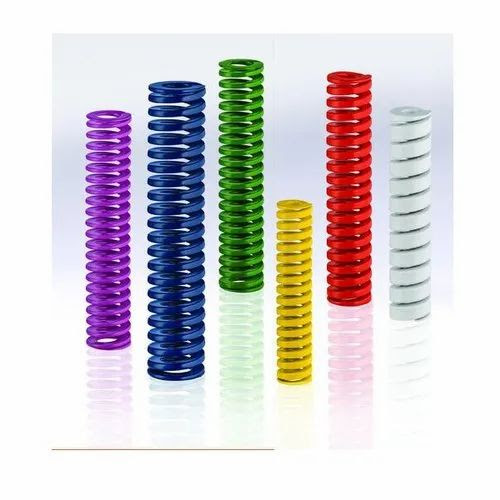Coil Springs
06-Jun-2024

Springs in a car suspension system play several critical roles, contributing to the vehicle's comfort, handling, and overall performance. The key functions of springs in a car suspension include:
- Absorbing Shocks and Vibrations: Springs absorb the shocks and vibrations from the road surface, providing a smoother ride for the passengers by mitigating the impact of bumps, potholes, and uneven terrain.
- Supporting Vehicle Weight: Springs bear the weight of the vehicle, including the chassis, engine, passengers, and cargo. They maintain the vehicle's ride height and ensure that it remains level under different load conditions.
- Maintaining Tire Contact with the Road: Springs help keep the tires in continuous contact with the road, which is crucial for traction, braking, and handling. This ensures better control and stability of the vehicle, especially on uneven surfaces.
- Improving Handling and Stability: By allowing the wheels to move independently of the chassis, springs help in maintaining vehicle stability and improving handling dynamics. They reduce body roll, pitch, and dive during acceleration, braking, and cornering.
- Providing Comfort: The primary function of the suspension springs is to enhance passenger comfort by isolating the vehicle's occupants from road imperfections. This reduces the physical strain and discomfort caused by rough terrain.
- Distributing Load: Springs help in distributing the load evenly across all four wheels, which helps in maintaining balance and preventing excessive wear on any single part of the suspension system.
Springs are a vital component of the suspension system, ensuring a balance between comfort, control, and safety. Properly functioning springs contribute to a vehicle's performance and the overall driving experience.

 Loading..
Loading..